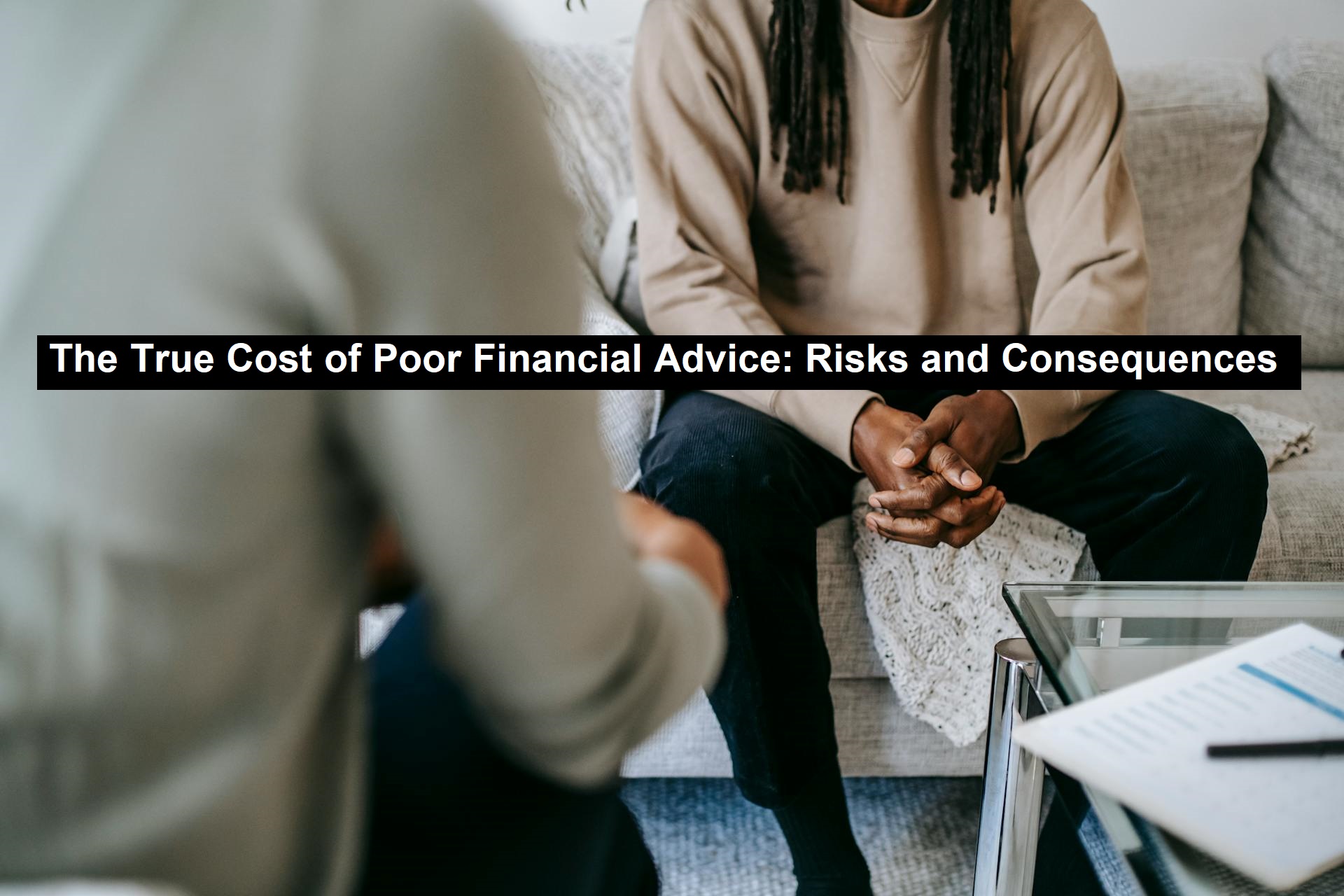The True Cost of Poor Financial Advice: Risks and Consequences
Receiving poor financial advice can have serious repercussions that extend beyond mere monetary losses, impacting your overall well-being and life satisfaction. When seeking financial guidance, individuals often rely on advisors, online resources, or recommendations from friends and family. However, not all advice is reliable, and subpar guidance can compromise your financial stability and hinder long-term objectives.
A significant issue with financial advice is the lack of proper qualifications among some advisors. Many lack essential certifications like CFP (Certified Financial Planner) or CEPA (Certified Exit Planning Advisor) and fail to highlight critical credentials such as fee-only status or fiduciary duty. This can result in generic advice that does not address your unique financial situation, leading to poor investment choices, unnecessary risks, and missed opportunities.
Conflicts of interest further complicate the situation. Advisors who are not Independent Registered Investment Advisors (RIAs) may push products that benefit them financially rather than serving your best interests. Such biases can result in higher fees, lower returns, and overall dissatisfaction with your financial planning. Portfolio management services can be a valuable tool for investors, but poor financial advice can lead to significant losses and hinder the achievement of long-term financial goals. It is crucial to work with fiduciaries who are legally bound to act in your best interest.
The internet also contributes to the spread of poor financial advice. Social media, blogs, and forums often feature unverified information and misleading tips. Despite their seemingly trustworthy appearance, these sources lack regulatory oversight, which can lead to bad investment decisions, increasing debt, and other financial troubles.
Read: Why It’s Crucial to Distinguish Between Fixed and Variable Costs
The impact of bad financial advice extends beyond your finances, affecting your mental health and personal relationships. Financial stress is a leading cause of anxiety and depression, and it can lead to conflicts within families. Money-related disagreements can strain relationships and create lasting tension among loved ones.
Retirement planning is another area where poor advice can be particularly damaging. Inaccurate or biased guidance can result in insufficient savings, forcing you to work longer or accept a lower quality of life in retirement. Poor financial advice can lead to significant losses when investing in property, including buying overpriced properties, neglecting maintenance, and facing unexpected legal issues. This is particularly distressing for those who have diligently saved and planned, only to have their efforts undermined by poor advice.
To avoid these pitfalls, it is essential to seek high-quality financial advice. Verify the qualifications and certifications of advisors, such as CFP, CEPA, and RIA, understand their fee structures, and look for fiduciaries. Enhancing your financial literacy will also help you make informed decisions and identify potential red flags in the advice you receive.
The Real Cost Of Poor Financial Advice was provided by Windfall Advisors, an organization providing exceptional financial advice for lottery winners
For more information on the real cost of poor financial advice and additional tips for safeguarding your financial health, please refer to the accompanying graphic. Building a safety net through diversified investments and emergency savings can help mitigate the risks associated with receiving poor financial advice.




